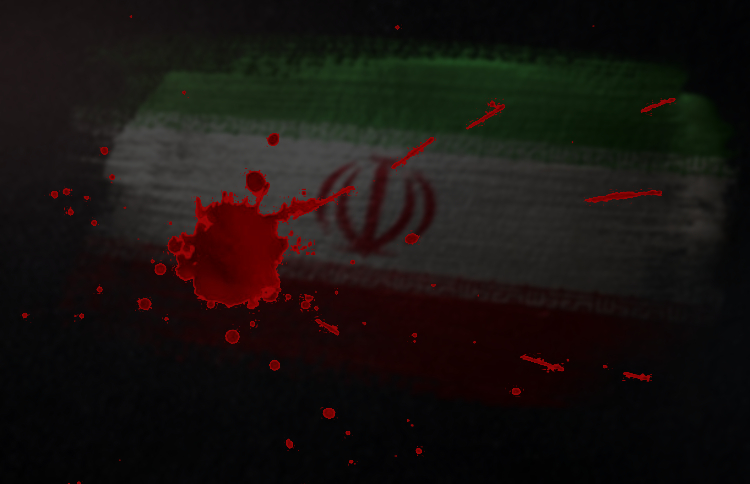
By Jubin Katiraie
As the Iranian government achieves more failures in different sectors, it resorts to more suppression on the society to terrorize the society from expressing discontent and protest. In this respect, the record of ayatollahs’ human rights violations during only two primary weeks is significant.
Two prisoners executed in Iran
Two Iranian prisoners were executed on Wednesday morning in Adilabad Prison of Shiraz, although their death was not announced in state media.
The pair, identified as Hadi Mahi and Sadeq Akbarpour, were arrested in 2016 and subsequently sentenced to death.
The Iranian government’s use of capital punishment has garnered international outrage and condemnation for many years, with several independent international bodies, like the United Nations Special Rapporteur on Human Rights in Iran and Amnesty International, highlighting these grim statistics:
- Iran is the world leader in executions per capita
- Iran is the second biggest execution in terms of numbers alone
- Iran executes most children and juvenile offenders
During the presidency of supposed moderate Hassan Rouhani, since 2013, at least 3,800 people were executed, including dozens of juveniles and 105 women.
While Iran Human Rights Monitor reported that in 2019, at least 273 individuals were executed, including six political prisoners, nine juvenile offenders, and 16 women, with at least 13 executions taking place in public.
Of course, these figures should be considered a minimum because of the government’s secrecy around stuff that makes them look bad.
Iran HRM wrote: “The Iranian regime uses execution as a tool to suppress and silence a disgruntled public the majority of whom live under the poverty line, are unemployed and deprived of freedom of expression.”
Ebrahim Raisi
In March 2019, Iran’s supreme leader Ali Khamenei, appointed notorious former judge Ebrahim Raisi (aka Ebrahim Raisosadati) as head of the all-powerful judiciary to keep a lid on social unrest. Since then, at least 173 people have been executed across Iran.
Raisi is most infamous for his role in the “death commissions”, during the 1988 massacre of political prisoners when he sent thousands of peaceful activists to the gallows.
At the time of their execution, most of these political prisoners had already been sentenced to prison terms or had actually served their time, but the regime gave them five-minute trials with no defense allowed. They were only given a choice between death or swearing allegiance to the regime.
The few who said they’d rather disavow their political activism were forced to make televised confessions about their “crimes” and run through minefields laid during the Iran-Iraq war to prove their loyalty.
Because of this, US State Department deputy spokesman Robert Palladino called Raisi’s appointment a “disgrace” and a “mockery of [the] legal process” on March 5.
Iran regime arresting activists to quell protests
The Iranian authorities have been arresting and convicting teachers’ rights activists in an attempt to stop teachers’ nationwide protests.
One such activist targeted is Eskandar Lotfi, who was sentenced to two years in prison the Penal Court of Sanandaj, following a trial that began on January 27
Lotfi, who is the inspector for the Teachers’ Coordination Council, was informed of his sentence on February 6.
He has been summoned last year following the teachers’ sit-in strike in Kurdish cities and was charged with “propaganda against the state” and “disseminating falsities”. He was referred to the Revolutionary Court of Sanandaj before being freed on bail.
While in a related case, three activist teachers, who are members of the board of directors of the Teachers’ Union in Qazvin Province, were ordered to pay fines.
Mohammad Reza Behnam Nejad, Maryam Zirak, and Soheila Zalbeigi were charged with “propaganda against the state”.
They had previously been sentenced to 24 months in jail by the Revolutionary Court of Qazvin on November 4, but the Revision Court of Qazvin subsequently converted this into 12,100,000 tomans fine.
The trio had taken part in the nationwide protests of teachers last year, to protest a lack of attention to educational problems, unfair allocation of the national budget, monetized education, and the dire financial situation of teachers.
The Teachers’ Coordination Council organized three nationwide sit-in strikes in March, October, and November of 2019. A large number of teachers in most provinces took part and refused to attend their classes for two to three days, each time, despite the regime’s repression.
In other news related to the repression of activists, the Iranian authorities have been arresting, en-masse, supporters of the People’s Mojahedin Organization of Iran (PMOI/MEK) and former political prisoners in the lead-up to the anniversary of the 1979 revolution and its upcoming parliamentary election.
This includes:
- Majid Mowtab
- Majid Zabihi
- Hassan Tarvardian
- Reza Qoli Shirmohammadi
- Yasser Shirmohammadi
- Ali Osanlou
- Morteza Osanlou
- Hamid Osanlou
- Mahmoud Yousefi
- Mohammad Ali Karnama
Many of these were previously arrested in the 1980s.
Iran Human Rights Monitor urged the United Nations Security Council, the High Commissioner for Human Rights, and other human rights organizations to take urgent action to ensure the safety of these prisoners and arrange their immediate and unconditional release.
Read More:


